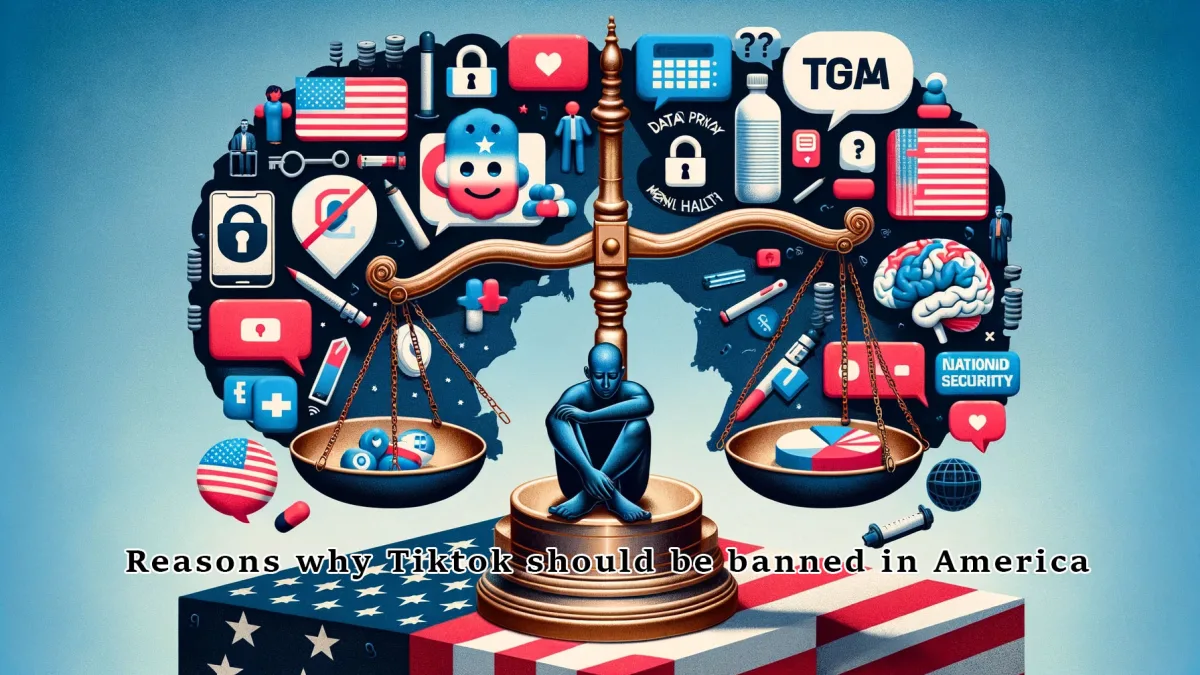In the dynamic and ever-evolving landscape of social media, TikTok has emerged as a cultural phenomenon, captivating audiences worldwide with its short-form video content. However, its surging popularity has not been without controversy, especially in the United States, where debates over its potential ban have ignited discussions on national security, data privacy, and the impact of social media on youth. Let’s dive into the whirlpool of opinions, facts, and concerns surrounding TikTok and explore why some are calling for its ban in America.
At the heart of the TikTok debate are concerns over national security and data privacy. Critics argue that TikTok, owned by the Chinese company ByteDance, poses a significant risk due to the potential for data harvesting and the influence of the Chinese government over the platform. Allegations have been made that under Chinese law, companies like ByteDance could be compelled to hand over user data to the Chinese government, sparking fears over the misuse of American citizens’ information. Despite TikTok’s assurances of its commitment to user privacy and data security, these concerns remain a cornerstone of the argument for its ban in the U.S.
Moreover, TikTok’s impact on mental health, particularly among its younger audience, has been a subject of intense scrutiny. Investigations have been launched by states to examine whether TikTok’s algorithms and content could cause harm to the mental and physical well-being of its users, especially teenagers and young adults. The platform’s role in promoting potentially dangerous challenges, which have led to injuries and fatalities, further fuels the debate on its influence on youth culture and safety.
The potential for censorship and manipulation of information on TikTok has also been a significant concern. Critics fear that the platform could be used as a tool for influencing public opinion and spreading misinformation, a risk not unique to TikTok but perhaps more pronounced given its ties to China and the vast amount of user data it processes.
In response to these concerns, various measures have been taken, including the banning of TikTok on government devices in several states and discussions at the federal level about a nationwide ban. However, implementing such a ban raises questions about its feasibility, implications for free speech, and the precedent it sets for the regulation of social media platforms.
It’s essential to consider the broader context of these debates. Similar concerns about data privacy, security, and the impact on youth have been raised about other social media platforms, highlighting the need for a comprehensive approach to digital safety and privacy that extends beyond a single platform.
In conclusion, the debate over banning TikTok in America touches on complex issues of national security, data privacy, the psychological impact of social media, and the balance between safeguarding citizens and upholding freedoms in the digital age. As the conversation continues, it will be crucial for policymakers, technology companies, and the public to navigate these challenges thoughtfully, ensuring that actions taken are in the best interest of security, privacy, and the well-being of users while preserving the vibrant, creative space that platforms like TikTok have created.









Leave a Reply